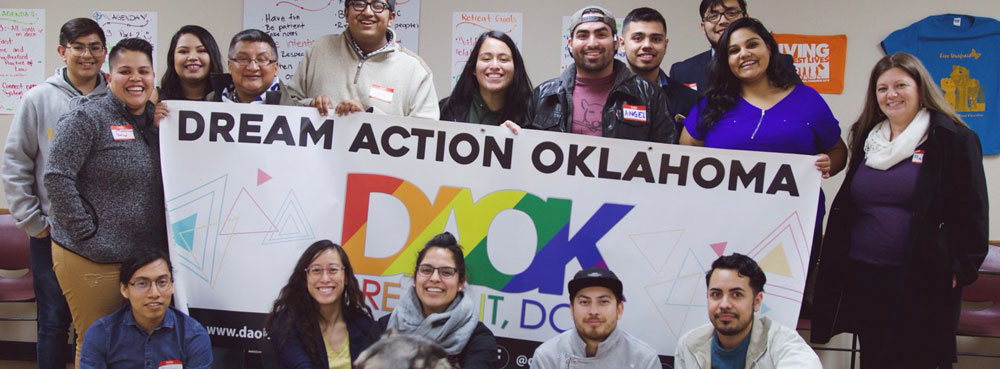
July 21, 2019; NBC News and Enid News & Eagle (Enid, OK)
The federal government’s plans to re-open Fort Sill in Lawton, Oklahoma, as a detention camp (here labeled an “emergency influx shelter”) to imprison undocumented migrant children has elicited a coalition protest from a range of organizations who vow that they cannot allow the violence inflicted on them and their ancestors happen again. Among these groups are Japanese Americans who note that the same site was once used as a concentration camp for Japanese Americans “interned by the US government during World War II.”
“It is horrific that a place like Fort Sill, which was once used to unjustly detain Japanese Americans, should be used today to hold migrants. We cannot allow our past mistakes to become present policy,” said actor and activist George Takei, who lived as a child in two internment camps, in a statement released by United We Dream.
“This is why our elders came to Fort Sill to demand that this army base not be used yet again to detain 1400 migrant children,” added Mike Ishii, co-chair of Tsuru for Solidarity.
Hundreds of protesters called for the camps to be closed, including representatives from United We Dream, Dream Action Oklahoma, Tsuru for Solidarity, Black Lives Matter Oklahoma City, Indigenous Environmental Network, and Women’s March Oklahoma.
Sign up for our free newsletters
Subscribe to NPQ's newsletters to have our top stories delivered directly to your inbox.
By signing up, you agree to our privacy policy and terms of use, and to receive messages from NPQ and our partners.
Enid News & Eagle reports that the protestors blocked the entrance to the fort while “a Soto Zen Buddhist priest and Buddhist monks representing multiple sects led a ceremony. The service was a memorial for deceased loved ones; it represented the death of a Japanese man killed at Fort Sill during WWII, the indigenous people lost, and dead migrant children.”
“We will not allow history to repeat itself with a concentration camp for immigrant children,” said Brenda Lozano, program development coordinator at Dream Action Oklahoma. “Generations of Japanese, Native American, and Black people have all been hurt by Fort Sill.”
During World War II, Fort Sill held 700 of the more than 100,000 Japanese Americans detained in camps across the country. Also, as Mari Matsuda, a law professor at the University of Hawaii wrote in an op-ed in USA Today, “Fort Sill presided over the displacement of native people. The great Apache chief Geronimo and families from his tribe were imprisoned for years at Fort Sill—the first instance of child incarceration there.”
“I’m undocumented, unafraid, and here to stay,” said Greisa Martinez Rosas with United We Dream. “Our ancestors have walked through deserts, have crossed rivers, have crossed oceans, all so that today in Lawton, Oklahoma, we can meet together and demand our people be let free. Because we know it is not just about the camps; it is about a history of exclusion and this idea that black and brown people are not good enough and that they belong in cages.”
Brenda Lozano with Dream Action Oklahoma said the crowd reflected a longing for inclusion. “Every single one of us in this state matters, and Oklahoma is our space. Oklahoma is our home and we will not be ‘OK’ until everyone recognizes that every single individual here matters.”—Ruth McCambridge













